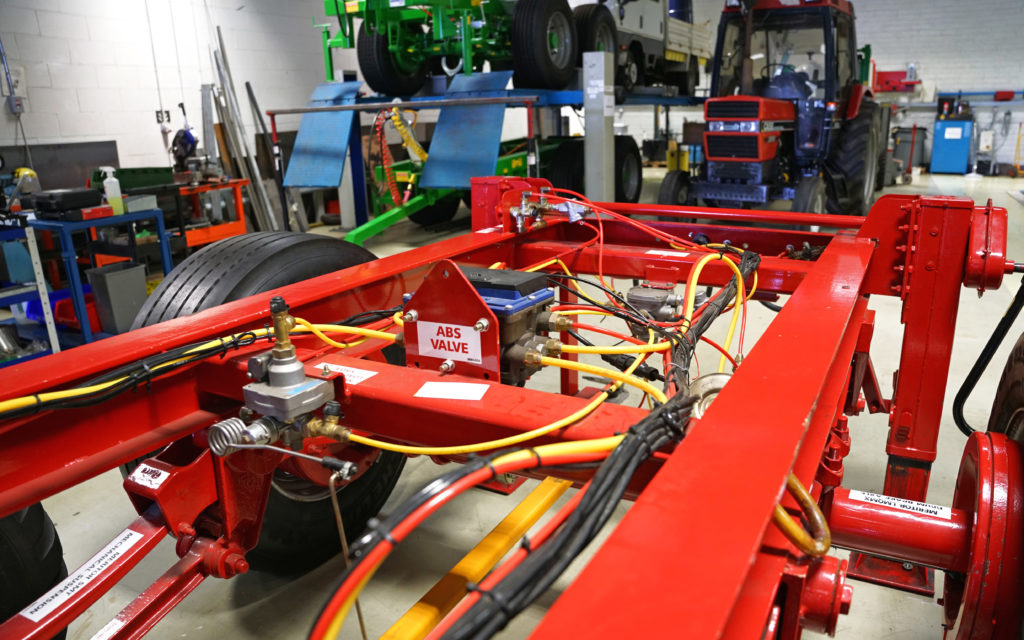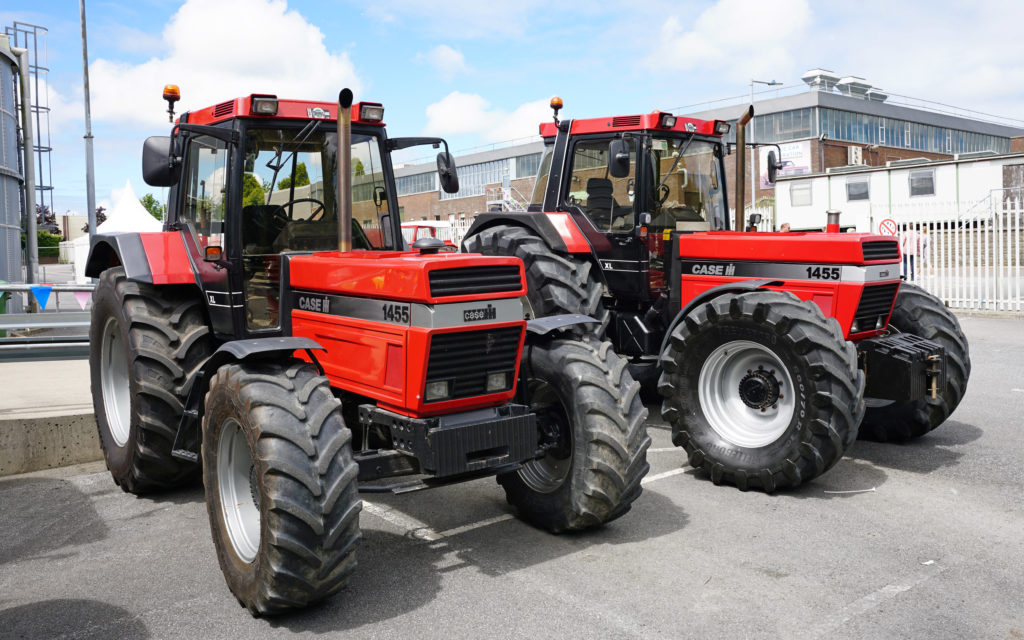Despite advances in design and manufacturing technique, machines are still machines and they will always suffer breakdowns and require the services of a mechanic at some point.
To cater for that day, there is a fixed and internationally recognised apprenticeship scheme to train agricultural mechanics which lasts four years, and aims to produce staff fully conversant with tractor and machine repair and maintenance.
Structured course
The training is divided up into seven phases, split between practical work with a dealer and instruction at college.

The first phase, lasting three months, is undertaken in a dealer’s workshop; the dealer needs to have a fully trained mechanic on the staff before being able to enter an employee for the course.
The second phase is 22 weeks of classroom and practical work at the Waterford campus of WWETB (Waterford and Wexford Education and Training Board).
Starting with the fundamentals
It is here that students are introduced to the basics of farm mechanics and the staff make no apologies for starting at the very beginning by explaining the four-stroke cycle and the function of a gearbox.

With a mix of age ranges coming to the college, anywhere from 17 to returnees to training in their 40s, it is essential that all start off from the same knowledge level, and so whatever the item of machinery being discussed, be it an engine or baler chain, it all comes down to first principles.
The college, which recently held an open day, in conjunction with the classic car restoration course, appears impressively well equipped to present the course.
Mixed fleet
There is a fleet of six tractors of different makes and a McHale baler for the practical demonstration of how belts and chains are used in machinery, along with other power transmission components.

Standalone units are used for engine and gearbox construction while a Valtra is pressed into service to demonstrate inboard brakes, by virtue of the fact that the cab does not need to be removed to get to them.
Electronics and a tractor’s CANbus system are not taught at this level, although standard electrical circuits, such as lighting systems, are.
Determined leadership
Over the last few years a good deal of investment has taken place and the buildings at the industrial park they now occupy are modern with an air of cleanliness that is lightyears away from the image of oil besmirched floors and smoke-blacked ceilings that many might associate with tractor workshops.

Much of this is due to the enthusiasm of the regional training director, John Cassidy, who not only has great enthusiasm for getting things done, but even more importantly, also has a vision of what needs doing.
John oversees all of the training on the campus, including other trades from hairdressing to plumbing, and despite the quality of the present facilities, he highlights two concerns with regard to the agricultural apprenticeship scheme in Waterford and in general.
Ongoing issues
The first is that the buildings are only held on a short-term lease. He, and the staff, would dearly love more permeance, but industrial space is at a premium in Waterford and so long-term agreements are hard to come by.

This does not deter the present course staff who are happy to have all the training facilities under the same roof, although they are shared with the Heavy Vehicle Maintenance course.
The second is one which goes some way to explaining the problems dealers are having in recruiting and retaining skilled staff, and that is the lower wage rates found in agriculture.
Trade dependent pay rates
Apprentices are paid a rate during their training that is set by the unions, or other interested organisations, and broadly reflects the earning potential of the individual in the workplace.

Unfortunately, agricultural mechanics are somewhere towards the bottom of the league and this, combined with the unsociable hours, is obviously a strong disincentive to recruitment.
The message to dealers is that trained staff are hugely valuable to a dealership and will need to be rewarded accordingly.
Value your mechanic
Likewise, farmers and contractors, who rely on mechanics to keep their businesses going, also need to appreciate that they have lives of their own and 3:00a.m call-outs hardly contribute to keeping them in the trade.
Despite the pay issue, the course is full, with 32 students making up each intake. They are not all sons of farmers or dealers either, just so long as they have an interest in machinery, their background is irrelevant.

Waterford is also a place where they join the network of qualified mechanics who have passed through the mill and will often remain lifelong friends.
It is a network of benefit to us all as knowledge is freely shared within it, speeding up the repair of machines as expertise is passed around between those who work on different makes of machine.
